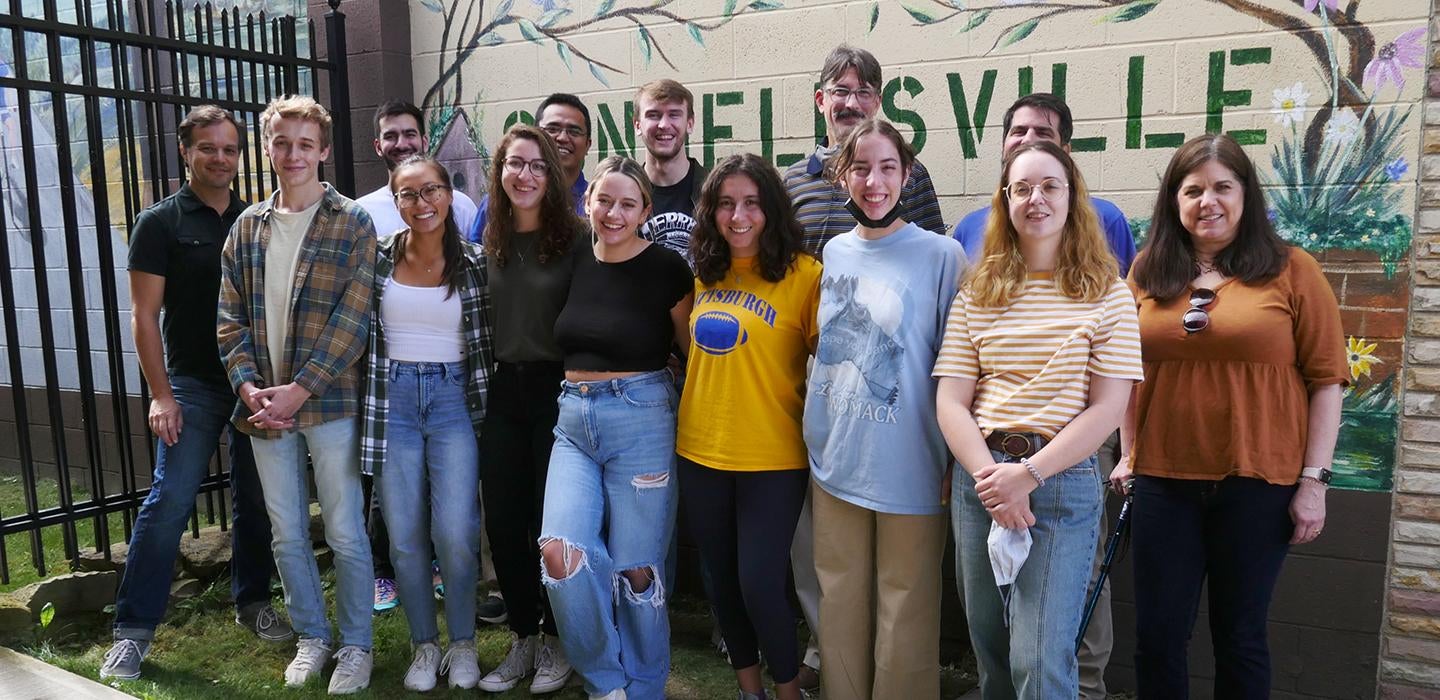
Subscribe to Pittwire Today
Get the most interesting and important stories from the University of Pittsburgh.Gabrielle Payne remembers hearing her grandparents talk about “brain drain” and population decline when recounting their youth in downtown Irving, Pennsylvania.
“They would always talk about how it was so busy all the time, and there were all these shops. Then people slowly trickled out,” said Payne (A&S ’22), a recent Pitt urban studies and sustainability graduate.
Her personal experience and history are part of what inspired Payne to look for opportunities to participate in regional economic revitalization when she came to Pitt.
Enter the Appalachian Teaching Project (ATP).
Run by the Appalachian Regional Commission and administered by East Tennessee State University, the ATP supports research aimed at finding ways to help people thrive economically in communities that have been left behind.
Encouraging economic development in these communities often follows a theme, and not an effective one, according to Michael Glass, director of Pitt’s Urban Studies Program in the Kenneth P. Dietrich School of Arts and Sciences and one of the project’s leaders.
“The tendency has been to just parachute in some sort of facility that could act as an anchor for generative effects — so put in this factory, and it’s going to make jobs,” Glass said. “But you lessen the impact of that facility because it just replicates what’s occurring elsewhere.”
What the Pitt team has pursued instead is an asset-based approach: identifying ways to build on what’s unique about a community that couldn’t easily be reproduced somewhere else. In the group’s first trips to Connellsville in fall 2021, that meant interviewing local business owners and residents and conducting “asset mapping” to identify these resources.
Pitt's efforts emerged from conversations with the Fayette County Cultural Trust — an organization focused on promoting the county’s culture and spurring economic development — that began even before Pitt submitted a grant proposal to the ATP.
“There is no greater expert about a community than the organizations that reside within it,” Glass said. “But what a university brings to bear is the capacity for faculty with expertise in different research sites to bring their knowledge about what are considered best practices or emerging trends in other locations to inform those community-based partners.”
In other words, while the residents of Fayette County know their area the best — both the challenges they face and their unique strengths — Pitt researchers can provide the breadth of expertise that comes from doing similar kinds of work in other regions and a lifetime of academic engagement on the topic.
“The Fayette County Cultural Trust is grateful for the partnership that has been formed with the University of Pittsburgh through the ATP initiative,” said Michael Edwards, the trust’s president. “This collaboration has brought attention to rural communities within Fayette County by focusing on the many assets that they contain. We look forward to seeing the fresh ideas the students bring forth as part of the program.”
Bryan Schultz, director of global and experiential programs in the David C. Frederick Honors College, took on the task of organizing the project’s logistics, especially challenging because projects that cross disciplinary boundaries such as this one are rare. It takes some creative thinking to fit an interdisciplinary approach into an academic structure that’s not necessarily made for it.
“Even when there's a willingness to work across disciplines, you need to be able to find people and groups to grease those wheels to make it work,” Schultz said.
He gathered the team’s leaders: Glass; Associate Professor of Political Science Kristin Kanthak; and Civil and Environmental Engineering Assistant Professor David Sanchez. He also helped set up the structure by which students would receive credit for their work and organized spring term internships for three students with the Fayette County Cultural Trust, ensuring the work would happen year-round.
“If you just show up in the fall, a lot happens in those other nine months,” Schultz said.
Each student had a separate internship project, from working on ways to fill a former PNC building to investigating the potential for solar power in the county.
One of those interns was Payne. Her work took her to Connellsville, Pennsylvania — a town 30 minutes from where she grew up — where she explored the economic potential of the Great Allegheny Passage Trail, which runs through the county.
The team will be back with new students this fall, and subsequent semesters of work on the project will see the team expand out from Connellsville to other parts of Fayette County, including Uniontown and other more rural areas.
“We’ve got the pieces in place that we can start spreading our wings, so to speak, and creating an impact beyond Allegheny County in ways that really can move the needle for Western Pennsylvania,” Glass said.
And it’s just the very first steps of a process that the group envisions as lasting a decade or more.
Like the town’s residents, Pitt researchers want to see people in the region thrive.
“We have so much in common, way more than we do different,” Schultz said. “I really feel like this project encapsulates that approach.”
— Patrick Monahan


